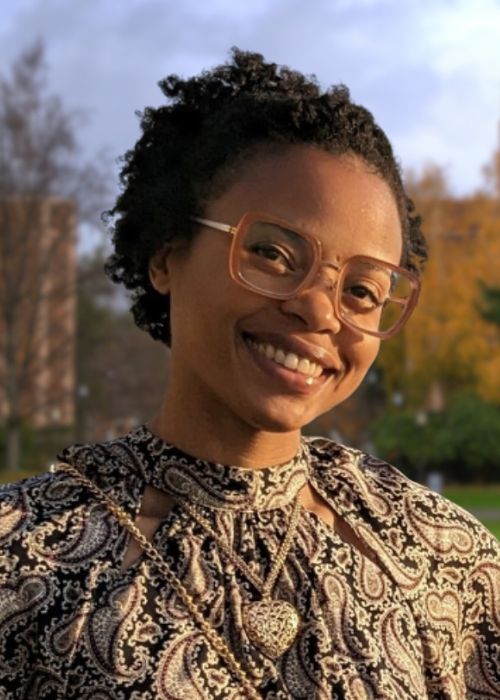
Tell us about your background and why you chose UW?
I grew up in Williamsburg, VA, where I was immersed in a culture rich with ancestral history, yet often found historical narratives altered in textbooks. My background includes varied roles in the food and hotel industry, working as an Army medic, and teaching. After moving to Seattle at age 28, I was drawn to UW’s focus on sustainability, science, and community impact. I value UW’s strong public health program, where I can learn more about how to address complex issues like food security, school nutrition, and health for underserved populations. At UW, I feel confident that my education will be rooted in a clear, fact-based understanding of historical and systemic issues.
What influenced you to major in Food Systems, Nutrition, and Health?
My experiences working in both food service and health settings, and my love of history inspired me to choose this major. The FSNH major aligns with my goal to improve public health by using science-based approaches to address systemic challenges in food systems and community health.
What has been the most compelling thing you’ve learned so far in the program?
Courses in anthropology and nutrition have shown me how deeply cultural, historical, and biological factors interact with health, sustainability, and economy.
How do you envision applying what you’ve learned in the program after graduation?
After graduation, I plan to intern and work in public health or policy roles that focus on veterans’ health, improving school food programs, and child nutrition education. Ultimately, I hope to shape policies and programs that make nutritious food more accessible in ways that reflect the adaptive and evolutionary aspects of human health.
What do you like to do for fun?
I love reading nonfiction, especially about science, history, and food, it helps me stay grounded. I also enjoy tutoring, cooking, and gardening to keep me connected to community and nature.
Share a fun fact about yourself.
My earliest known ancestor was born enslaved in North Carolina in 1790, during the first term of George Washington. As a first-generation college student, I’m proud to honor that legacy while it drives my work toward systemic change in food access and health.
What are your future goals?
I want to improve food access and nutritional education through a natural science lens, with a particular focus on veterans, school nutrition, and child health. I’ll be participating in the School of Public Health Undergraduate Mentorship Program, which I hope will deepen my understanding of public health’s role in these areas and options for continuing my education.
What do you enjoy most about living in Seattle?
I’ve lived in Seattle for five years, and I love that it’s a city with a rich indigenous history like my hometown, Williamsburg. It’s a microcosm of experiences about the range of disciplines within food systems. Seattle’s range of food culture and public health initiatives offers student opportunities to explore examples of our studies in action. I also love the public libraries!
What advice would you give someone considering the Food Systems major?
For anyone considering the Food Systems major, my advice is come prepared for a challenge to your perspectives, and don’t hesitate to take courses in other disciplines; they’ll offer valuable insights that connect back to food systems. Take advantage of the resources around campus, from research study opportunities to attending office hours, which can deepen your understanding and connections within the field. Collaborating with peers can offer diverse perspectives and enrich your learning experience but remember to think for yourself, too.
Interested in food, nutrition, or health as an undergraduate? Explore the Food Systems, Nutrition, and Health major or nutrition minor.